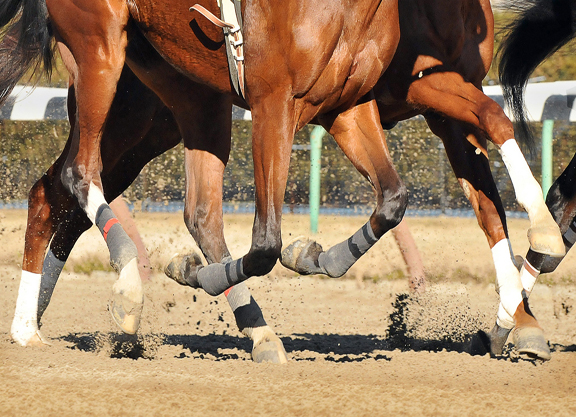By T. D. Thornton
Federal attorneys want the National Horsemen's Benevolent and Protective Association (HBPA)'s anti-constitutionality lawsuit thrown out of court, arguing that the HBPA's allegations of injury regarding the Horseracing Integrity and Safety Act (HISA) “are entirely threadbare” because no rules, regulations or fees have been established by the not-yet-in-effect regulatory body.
“Plaintiffs jumped the gun bringing this constitutional challenge,” the federal government stated in an Apr. 30 motion to dismiss filed in United States District Court for the Northern District of Texas. “Their complaint questions the validity of a law that currently subjects them to no obligation or penalty.”
The filing continued: “Neither the Federal Trade Commission (FTC) nor the [HISA] Authority have even proposed rules that they could endeavor to enact. There has been no proposal for rules regarding permissible and impermissible drugs; no proposal for rules regarding racetrack safety; and no proposals for rules regarding enforcement procedures or penalties…There has not even been a rule crafted to govern how the Authority is to 'propose' any rules to the FTC–which is all fitting, given that HISA is only four months old.”
In March, the HBPA, with the support of 12 of its state chapters, sued 11 individuals in connection with their official capacities related to the FTC and HISA's not-yet-active Authority. The HBPA claimed that the law, “unconstitutionally delegates to a private entity the legislative authority to regulate” the sport, and asked the court to “declare HISA unconstitutional and preliminarily and permanently enjoin Defendants from implementing and enforcing the law.”
The feds have responded that the HBPA has it wrong: The bill that got signed into law in December “merely creates a framework for the FTC, with the subordinate aid of the 'private, independent, self-regulatory, nonprofit' HISA Authority to enact future standards and rules.
“Congress established this framework because it concluded that, in the absence of independent national oversight and uniform drug and safety standards, the horseracing industry was failing to adequately protect its participants,” the filing stated.
“But, recognizing that rulemaking in a new area should proceed carefully and with proper deliberation, Congress provided that no regulations governing the conduct of horseracing can take effect before July 1, 2022. Regulations the FTC enacts under HISA may (or may not) impact Plaintiffs in the future. But there is not even a proposed regulation for Plaintiffs to complain about today.”
The filing continued: “Plaintiffs thus fail the most basic requirement for invoking this Court's jurisdiction: they cannot establish that they have been harmed in any concrete way by the law they protest. Nor can Plaintiffs establish that their challenges to the statute are ripe for judicial review.
“Adjudicating the merits of Plaintiffs' legal claims now would require the Court to evaluate HISA's framework in the abstract, unaided by any concrete facts or history of agency action. There is no justification for the Court treading this path under any circumstances, and it is doubly improper when Plaintiffs are asking this Court to resolve constitutional claims.”
The federal attorneys also argued that the HBPA's suit fails to support its central claim that HISA unlawfully delegates legislative power to the FTC and the private Authority.
“HISA is far more detailed than the statutory schemes that the Supreme Court has sustained against delegation challenges over the past 80 years,” the filing stated. “And both the Supreme
Court and courts of appeals around the country have repeatedly confirmed that private entities can properly provide extensive assistance to federal agencies, so long as those agencies retain
final decision-making authority and control, as the FTC does here.”
The feds asked the judge to toss out the lawsuit, either on the grounds of the alleged lack of subject-matter jurisdiction or, in the alternative, for the HBPA's supposed failure to state a claim.
“At best, Plaintiffs' complaint could be read to suggest that the Plaintiffs might be subject to some rules they dislike in the future…The Plaintiffs' challenge at this point therefore amounts to nothing more than a request for an advisory opinion on the constitutionality of HISA. This Court is not empowered to provide that, “The Plaintiffs may be able to show a concrete injury from HISA on some future occasion when a specific rule affects their interests,” the filing summed up. “Until then, however, the Court lacks jurisdiction to entertain their claims.”
Not a subscriber? Click here to sign up for the daily PDF or alerts.






